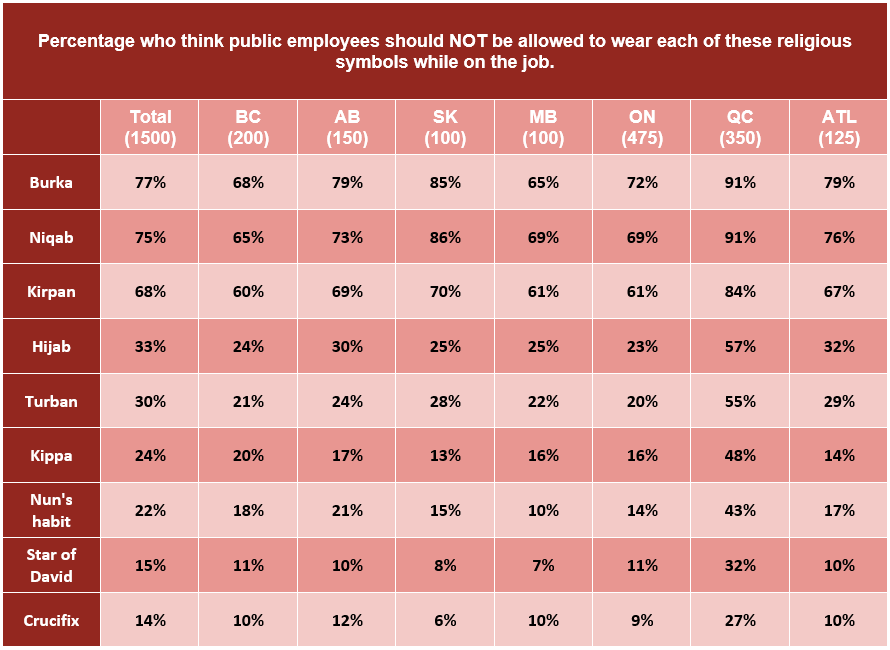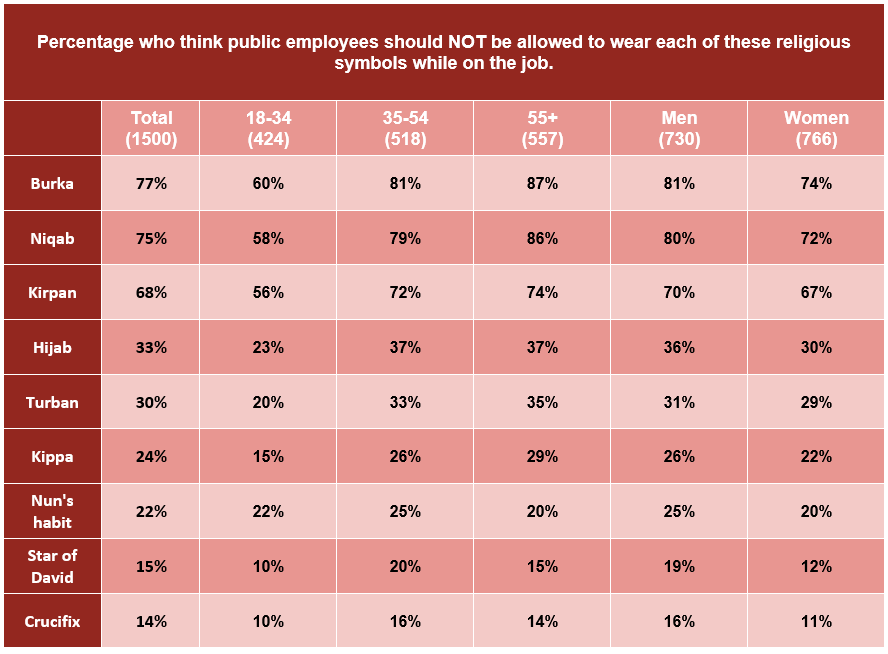These are the Canadians most likely to support bans on religious symbols
Do you know which demographic of Canadian is most likely support a ban on religious symbols in the public sector? Researchers at the Angus Reid Institute set out to learn just that, and released the results of their study on Dec. 4.
It turns out males in Quebec over the age of 34 are the most likely to support bans on religious symbols in the public sector.
The study comes as the province’s new Coalition Avenir Quebec (CAQ) government is considering just such a ban. If approved, the ban would apply to employees in positions of authority wearing visible religious symbols.
While polls have shown two thirds of Quebec residents support the proposed ban, the Angus Reid study shows that more than half believe public employees should be allowed to wear a crucifix, a Star of David or a nun’s habit at work.
“Shown images of nine different symbols and asked whether they should be allowed in the workplace for public employees, Canadians are most amenable to the Judeo-Christian items on the list,” the study concluded.
The study found widespread support across all provinces for a ban against burkas, niqabs or kirpans — the first two are head coverings worn by Muslim women, while the latter is a ceremonial sword or dagger worn by Sikhs — in the public sector, but that the sentiment is strongest in Quebec.
“Symbols from Sikhism and Islam are less favourably viewed, particularly if they cover the face — such as a niqab or burka — or, as some argue, could be considered a weapon, as in the case of the kirpan,” the final report said.

In fact, Quebecers are more likely than people in other provinces to say all religious head coverings should be banned, including the Muslim hijab, the Sikh turban, the Jewish kippa, and the Christian nun’s habit.
The study also found that people in certain gender and age cohorts are more or less likely to support bans on religious apparel in the public sector.
Across Canada, people under the age of 35 are more likely to say each type of religious symbol should be allowed, and less supportive of seeing it banned.
Women across Canada were also less likely to support bans on each type of religious symbol, while men were more likely to support bans.

What do you think? Do you support bans on public sector workers wearing religious symbols on the job? Do you support bans on certain religious symbols compared to others?
Let us know by answering our polls or have your say in the comments.

